Page 20 • (328 results in 0.039 seconds)
-

analytical reasoning, growing in their written and oral communication skills, and the ability to read and discern meaning from complex texts. “I’m really excited about the pre-law minor because it will bring more pre-law students to PLU,” she said. “I’m an environmental studies major, which is interdisciplinary, and the pre-law minor is set up to be like that too.” Whalen’s passion for nature stems from an early age when her parents gifted her a book on animal law. Around that time, she decided she
-
say all of art— is only ever about a poet’s feelings. But anyone who has ever taken a poetry-writing course knows that the making of a work of art may begin with the artist’s feelings, but to be any good it has to be brought into the realm of craft. In the poetry-writing classes I teach, I like to imagine the members of the class wearing lab coats —which is to say that the analytical work involved when we discuss each other’s poems is vital to a thorough understanding of how those poems work. As
-
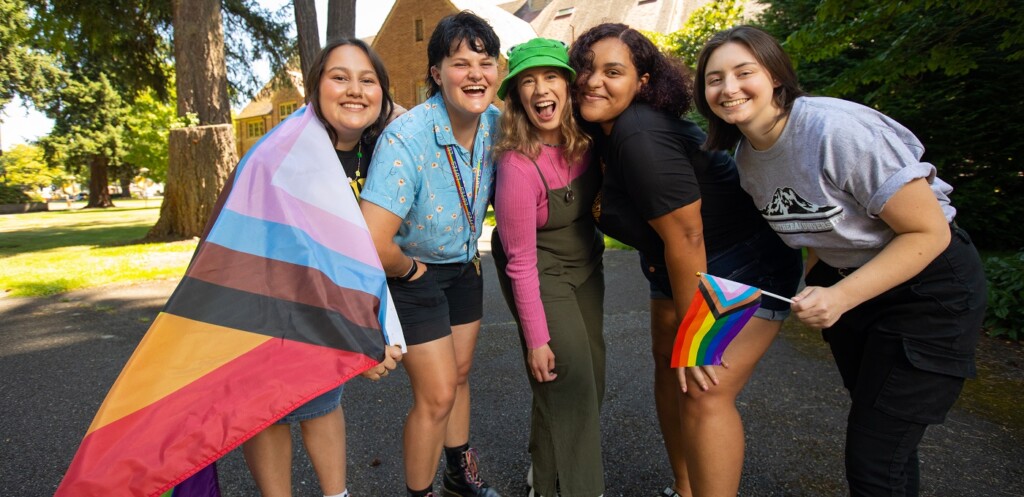
You Ask, We Answer: Is campus welcoming to the LGBTQIA+ community? Posted by: shortea / September 8, 2023 September 8, 2023 “PLU seeks to educate students for lives of thoughtful inquiry, service, leadership and care – for other people, for their communities and for the Earth.” Within that mission statement, the highlight here is “for their communities.” We recognize and value the differences and diversity of our students, who they are and what they bring to the campus community. With care in
-
in the program.” Read Previous Earth, Sea, Sky shows Permanent Art Collection’s strong points Read Next “Physicality of the Present” opens in the University Gallery LATEST POSTS Pacific Lutheran University Communication students help forgive nearly $1.9M in medical debt in Washington, Idaho, and Montana May 20, 2024 PLU Faculty Directs Local Documentary November 8, 2022 Scholarship Application Tips October 17, 2022 PLU’s Student-Radio Station Lute Air Student Radio Produces Monthly Concerts
-
Hoelter’s count. While monotonous work, Hoelter and Treichel agreed it was exciting to see all the variations of this very practical art form. “This gives you an idea of how this site fit in with the Aztec economy as a whole,” said Treichel. “This is a very basic technology,” said Andrews, carefully handling the large flake in his hand. It was used to shaving, hunting, scraping hides and drilling. Obsidian is the sharpest substance on earth. Yes, even sharper than steel. Under an electron microscope
-
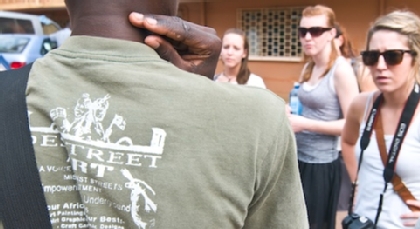
.” (Photo by Theodore Charles ’12) Lake Victoria, the largest freshwater lake in the world, houses a vast array of wildlife a majority of the fish that I have been consuming in Kampala. The smell is breathtaking, much like gardening on a hot day, with a thick smell of earth and sweet smell that I have yet to identify. We hopped into a van and headed forty-five minutes across a crazy traffic filled stretch of roadway into the heart of Kampala for groceries. Everyone was incredibly exhausted and after
-
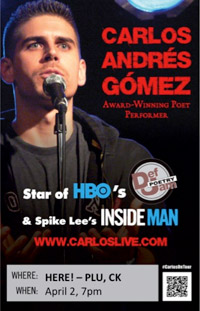
a new vision for our world. This is why I do art.” The tour’s title, inspired by what Carlos strives to achieve through his work, encourages each person to recognize the powerful agent for change she or he might be. As Carlos states, “It’s not that one person can make a difference, each one of us on this earth does make a difference – for better or for worse. The only question is: which one will you be?” The event will consist of a full performance set by the artist followed by a book signing
-
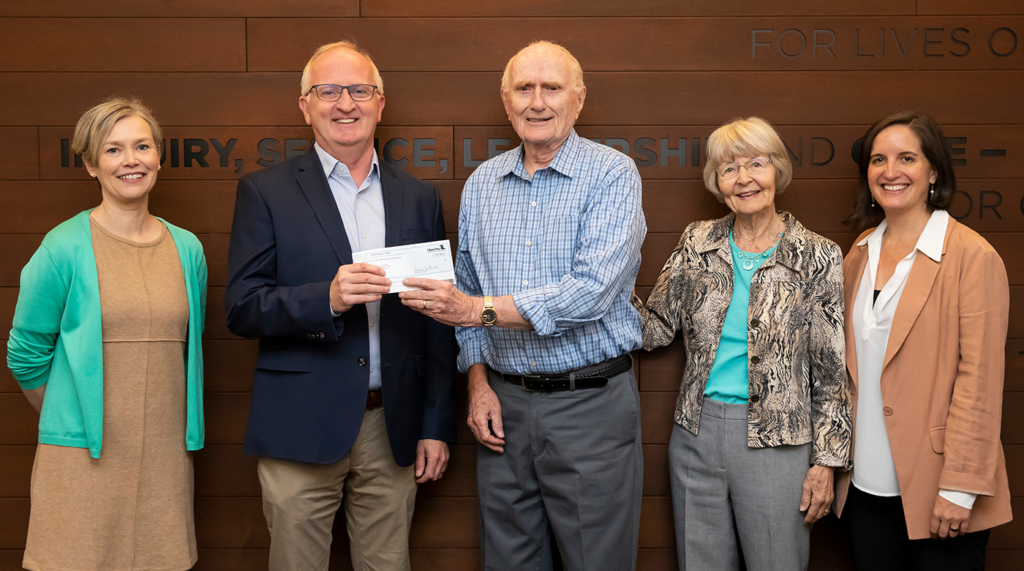
establishment of the Steen Family Symposium on Environmental Issues. David ‘57 and Lorilie Steen ’58 have generously donated funding to the PLU Environmental Studies program to support this new annual symposium. The gift is being invested in PLU’s endowment to go toward the university’s Earth Day celebration and to bring notable national speakers to campus. The symposium is the first piece of a significant investment the Steens are making in Environmental Studies at PLU. The Steens bring together generosity
-
the basic capacity to question remain part of the genetic encoding of Lutheran higher education. Thus, Lutheran reformers recognized centers of education as crucial places in which important questions could be entertained without censure. This tenet informs PLU’s foundational mission: to educate students for lives of thoughtful inquiry, service, leadership and care—for others, for their communities and for the Earth. One essential dimension of PLU’s mission is to provide for the intellectual
-
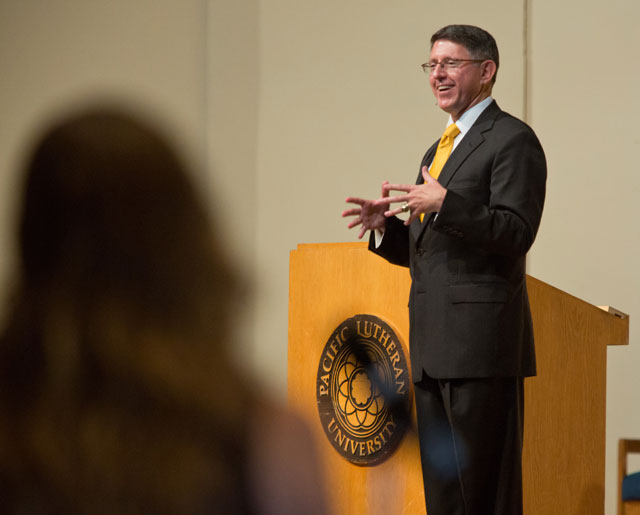
we have here—especially for those who’ve been here a long time or have only been here at PLU. But, in fact, the culture here is really notable and exceptional, and it is something that I’ve been hearing about for years and which very much attracted me to PLU. Our strong commitment to the liberal arts tradition, coupled with a vibrant shared governance structure and a spirit of collaboration and genuine care for each other and for our students all adds up to a rare, if not unique environment in
Do you have any feedback for us? If so, feel free to use our Feedback Form.


